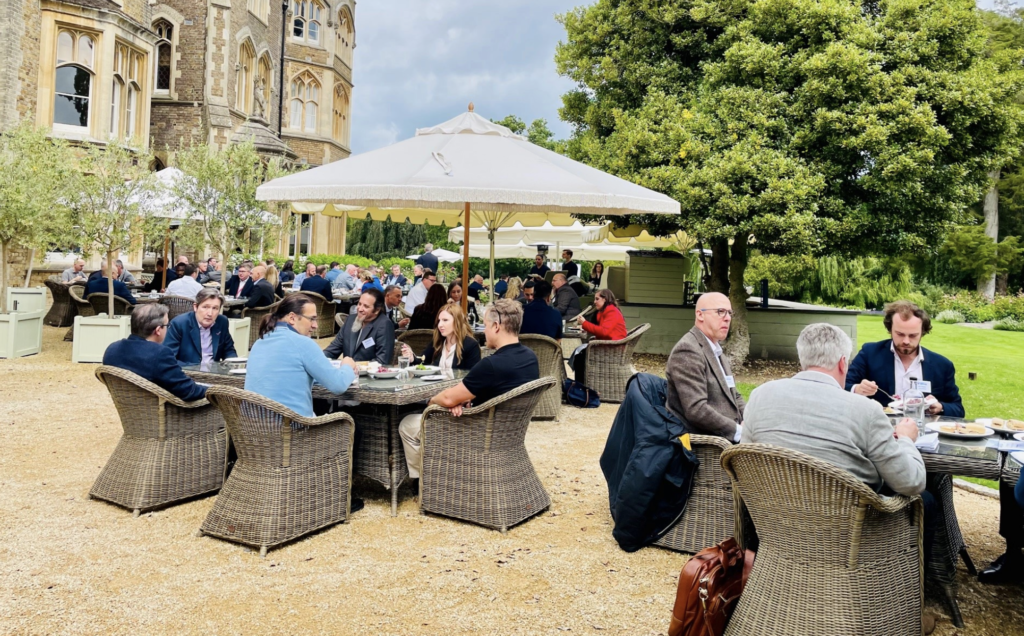How can organisers combine in person and virtual to create successful hybrid events? As business people cautiously return to travel and collaboration, what is the ideal mix of in person and virtual events?
The problem with hybrid events
“Hybrid events are twice the work for the same revenue” is the fairly jaundiced view of many event organisers. I have even heard that in some large event businesses the “h word” is banned. Over the last 18 months we have learned how to run virtual events and discovered they involve almost as much organisation as the old in person model. But with a world moving on from the pandemic and lockdown at different speeds, if you have an international audience, or even distinct groups with different views on travel, it is not going to be possible to go back to fully in person.
But some brave souls are taking the plunge. What can we learn from them and how can you decide whether it makes sense to turn one of your events hybrid?
Why it’s worth running hybrid events
Virtual events showed us that we can attract a new audience: more diverse, more inclusive, more small businesses, more early-career and mid-career executives, more international attendees. It would be a shame to lose this broader audience by returning to in person only.
Virtual only events don’t perform well on spontaneous networking. Despite the best efforts of platforms and organisers, people don’t mix as readily at a digital event and sponsors don’t get to initiate in depth conversations.
Sponsors have budgets to spend – many held back marketing investment earmarked for in person events. If we stay virtual only we may miss out on this cash pile.
Virtual events opened a whole new world of data and analytics – quantifying what people actually watched not just when they were in the same room as the speaker. Going back to “in person only” means we lose this intelligence.
How organisers are making hybrid events work
Organisers are developing new ways to create a special experience for both in person and virtual attendees. In person attendees need to feel safe and have plenty of space. For a summer event, an outdoor or partially outdoor venue really helps. Running 1:1s and small group discussions outdoors and offering the option for overflow audiences to watch speakers on an outdoor screen in an open marquee manages concerns about crowded indoor spaces. Asking for negative tests and offering individual bands to indicate the right level of personal contact help to reassure delegates.
Virtual attendees also need to feel special, and not treated as second class citizens. One event live streamed speaker sessions to virtual audience and then ran separate in person and virtual Q&A discussion groups.
Sometimes the in person and virtual audiences want to mingle. A good moderator can blend in questions from the virtual audience with those in the room. And organisers offering meet-up apps can make it possible for in person and virtual attendees to connect and chat.
The logistics of running an in person event and live-streaming content are complex, so you need a team with the right attitude and skills for both environments.
Examples of hybrid events:
https://www.wolvessummit.com/,
https://www.pulseconferences.com/conference/flagship-event-5th-ciso-360-congress-2021
How to decide if your event should be hybrid
The first step is to segment your audience. Is there a distinct profile for your in person and virtual audiences? Find out what each group is hoping to do at the event: make new connections, learn or be inspired, buy or sell a product or service? Then work out which needs for which group can be met best by a virtual or in person session. The event doesn’t have to take place all on one day. It may be easier to spread learning content over a longer period, and concentrate the in person networking and discussion in one session.
A small, learning focussed conference may work better as a fully virtual session.
An event driven by making new connections or facilitating discussions among senior peers works better as an in person event. It could follow on from a series of learning-based virtual sessions that set the agenda.
Enhancing your hybrid events with all year round community
Many organisers are reviewing their event calendar and ensuring that the broader, virtual audience they attracted during lockdown stays connected and engaged between the set-piece events. A good number are creating online communities to do this. But it is important not to underestimate the work that goes into running an effective community. Communities are built organically with a small core group of experts and opinion formers, before the wider audience becomes engaged. Your advisory board or speaker group might be a good place to start, but you will need a dedicated community manager to facilitate discussions.
Don’t dismiss hybrid too soon, for large scale events with an international audience it might be a necessity. But it is not always the answer – some smaller scale events can run as pure virtual sessions. And the very small, intimate round table, networking focussed event will usually work best in person.
If you are contemplating planning a hybrid event, do get in touch for a chat about your plans. https://speciall.media/contact/
Further reading on communities and virtual events
https://speciall.media/2021/01/19/new-insights-on-paywalls-b2b-communities-and-remote-teams/
https://speciall.media/2020/10/27/how-to-nurture-a-b2b-community-in-a-pandemic/
https://speciall.media/2020/09/29/charging-for-virtual-conferences-10-ideas/
https://speciall.media/2020/06/12/10-tips-on-how-to-market-a-virtual-event/
https://speciall.media/2021/02/20/smart-tips-on-virtual-events-from-like-minds/
About the author
Carolyn Morgan has bought, sold, launched and grown specialist media businesses across print, digital and live events. A founder of the Specialist Media Show (sold in 2014) she now advises media businesses large and small on their digital strategy through her consultancy Speciall Media.
Find out more about the advice we provide for publishers

